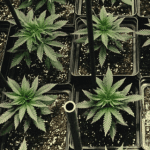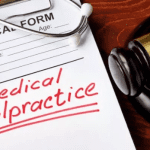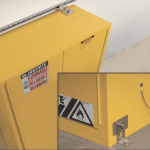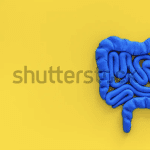Muscle strains are common injuries that can occur during physical activities or due to sudden movements. They can range from mild discomfort to severe pain and may limit your mobility temporarily. While it’s always advisable to seek medical attention for severe strains, many mild to moderate muscle strains can be effectively managed at home. Below are practical and safe techniques to deal with muscle strains and promote healing from the comfort of your own home.
Rest and Protect the Affected Area
Resting the injured muscle is crucial to allow it time to heal. Avoid activities that cause pain or discomfort, and give your body the opportunity to recover. Protect the strained muscle by using supports such as wraps, slings, or braces. These aids can help stabilize the muscle and prevent further injury while facilitating the healing process.
Apply Ice Packs
Applying ice packs to the affected area can help reduce pain, swelling, and inflammation associated with muscle strains. Wrap an ice pack or a bag of ice cubes in a thin cloth and place it on the strained muscle for 15 to 20 minutes, several times a day. Remember to take breaks between icing sessions to avoid damaging the skin. Do not apply ice directly to the skin, as it can cause frostbite.
Compression for Support
Compression can provide support and help reduce swelling in the injured muscle. Use an elastic bandage or compression wrap to gently wrap the affected area. Make sure the compression is snug but not too tight, as excessive pressure can impair circulation. Remove the compression wrap if you experience numbness, tingling, or increased pain.
Elevate the Injured Limb
Elevating the injured limb helps reduce swelling and promotes blood flow to the area. Prop up the affected limb on a pillow or cushion, keeping it elevated above the level of your heart whenever possible. This technique can be particularly useful for muscle strains in the legs or arms.
Over-the-Counter Pain Relief
Nonsteroidal anti-inflammatory drugs (NSAIDs), such as ibuprofen or naproxen, can help alleviate pain and reduce inflammation associated with muscle strains. You can easily buy medicines to reduce muscle pain from your nearest pharmacy. Follow the recommended dosage instructions on the packaging and consult a healthcare professional if you have any concerns or medical conditions that may interact with these medications.
Gentle Stretching and Strengthening Exercises
Once the initial acute phase has passed and the pain subsides, gentle stretching and strengthening exercises can promote healing and restore flexibility to the injured muscle. Consult with a healthcare professional or a physical therapist for guidance on appropriate exercises and techniques. Be cautious not to overexert or strain the muscle further during this phase of recovery.
Heat Therapy
After the first 48 to 72 hours, when the initial swelling has reduced, heat therapy can help relax the muscles and promote blood circulation. Apply a warm compress, a heating pad, or take a warm bath to the affected area. Make sure the heat is not too hot to avoid burns or exacerbating inflammation.
Progressive Return to Activity
As the muscle strain heals and the pain diminishes, gradually reintroduce gentle physical activity. Start with low-impact exercises and gradually increase intensity and duration. Listen to your body, and if you experience pain or discomfort, scale back your activity level and allow more time for healing.
Conclusion
While severe muscle strains may require medical intervention, many mild to moderate strains can be effectively managed at home. By following these self-care techniques, including rest, ice, compression, elevation, pain relief, gentle exercises, and heat therapy, you can aid the healing process and alleviate discomfort. However, if the pain persists, worsens, or limits your mobility, it is essential to consult a healthcare professional for a proper diagnosis and tailored treatment plan. Muscle relaxants and pain relievers like nuberol forte may also be prescribed to you to aid recovery.





